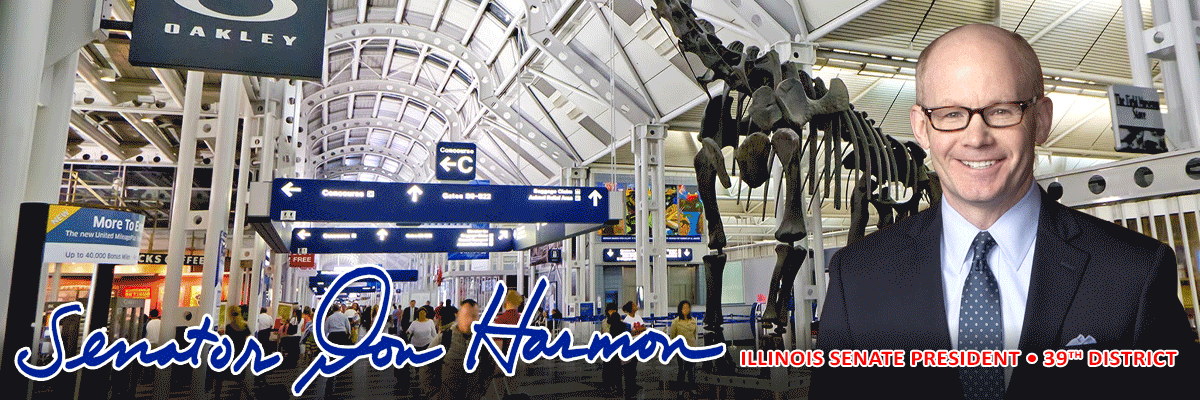Senate President Don Harmon, Governor JB Pritzker and Speaker of the House Chris Welch published the following op-ed in the Chicago Tribune on Wedneday, July 30, calling on transparency from State Farm on their recent insurance rate hike:
State Farm recently announced it is raising home insurance rates for nearly 1.5 million Illinois homeowners by an average of 27% and with rate hikes peaking as high as 40% for some.
That’s the largest single rate hike in recent history and will add an average of $750 a year to homeowners’ insurance bills.
At a time when the cost of living — particularly housing — is increasingly onerous for families across our state, State Farm’s move requires careful scrutiny and full transparency.
Headquartered in Bloomington, State Farm has long been a valuable Illinois company. It is Illinois’ largest home insurer.
Over the past six years, the Illinois Department of Insurance and the governor’s office have forged a steady partnership and open line of communication with State Farm’s leadership. To be clear, we value the services the company provides, the jobs it sustains and the substantial economic role it plays in our communities.
One in three Illinois homeowners hold policies with State Farm. And since these rate hikes were announced, we’ve heard from many of them. First, there’s the sticker shock of the sheer magnitude of the increase. But beyond that, there’s a deep sense of disappointment in what many feel is a violation of trust between State Farm and its loyal, local customers.
The disconnect stems from what insurance companies call the “catastrophe loss ratio” — the amount an insurer loses from disasters compared with what it collects in premiums.
State Farm’s huge rate hike raises suspicion because it is inconsistent with what we know. When insurance companies suddenly want to increase customer premiums $750 and blame it on their loss ratio, we simply ask them: Prove it.
In such cases, the Department of Insurance typically works with insurers to determine the source of major discrepancies. The department asks insurance companies for ZIP code-level data to make sure homeowners are paying fair insurance rates.
Other insurance companies work with us on this.
State Farm has refused.
State Farm rejected repeated requests for information from the Department of Insurance. Rather than being transparent and letting the numbers speak for themselves, State Farm is withholding vital information not just from the government, but also from its customers.
This lack of transparency takes on added importance when you consider that in 49 of the 50 states, regulators have authority to prohibit rate increases if the market is deemed noncompetitive or the increases are considered “inadequate, excessive or unfairly discriminatory.”
Illinois is the only state where the state government does not have any ability to prevent indiscriminate rate hikes. Special interests in Springfield have lobbied for years to keep it this way.
Momentum was already building for Illinois to change this policy and join the rest of the nation even before State Farm’s rate hike. The company’s actions now have pushed this commonsense consumer protection into the spotlight for the General Assembly’s fall session.
Taken in their totality — State Farm’s sudden, massive rate hike, the lack of transparency and the ongoing lobbying to avoid scrutiny — these events lead us to believe that State Farm may not be basing its rates on the actual data here in Illinois. As states across the country face even more extreme weather than we do, we need to make sure Illinois homeowners are not paying for losses that companies experience in other states.
We sincerely hope this isn’t the case with State Farm. But without the data, homeowners have no assurance. What we ask for is transparency in the interest of protecting homeowners, and the ability to act on the data when companies are unfairly profiting.
We are not asking for special treatment for State Farm, nor do we want the company to operate at a loss. We are seeking accountability and a level playing field.
The people of Illinois deserve nothing less.




